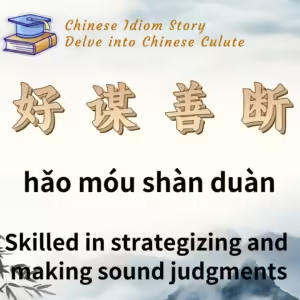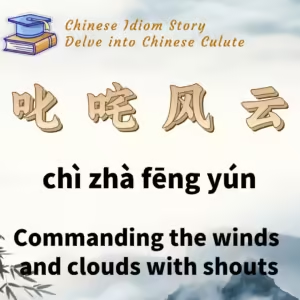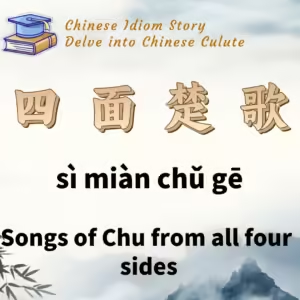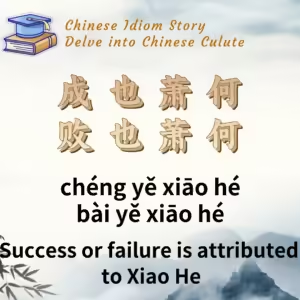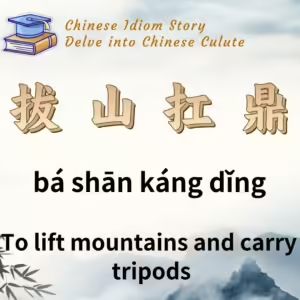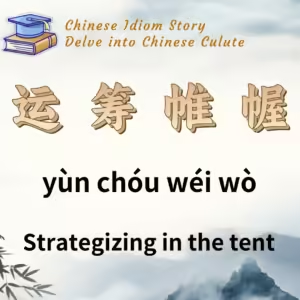
Chinese Idiom: 运筹帷幄 (Yun Chou Wei Wo)
English Translation: Strategizing in the tent
pīn yīn: yùn chóu wéi wò
Idiom Meaning: Originally referring to planning military strategies in a tent, it now generally means to strategize or direct affairs, especially in a commanding role.
Historical Source: “Records of the Grand Historian” (《史记·高祖本纪》).
Idiom Story:
During the early conflicts between the Chu and Han states, Liu Bang faced significant disadvantages compared to his rival Xiang Yu in terms of strength, social status, and personal abilities. However, he ultimately defeated Xiang Yu and secured victory.
In 202 BCE, after Liu Bang ascended to the throne, he held a banquet at the South Palace in Luoyang. Excited, he asked his ministers why he was able to seize control of the empire while Xiang Yu failed. The ministers agreed that Xiang Yu’s jealousy and inability to reward talent led to his downfall.
While Liu Bang concurred with this analysis, he believed the reasons for his success were deeper. He stated:
“You all know one side but not the other. In terms of strategizing in the tent and achieving victory from a distance, I am not as capable as Zhang Liang. To govern the country, pacify the people, and manage supplies, I am not as competent as Xiao He. To command an army of a million, ensuring victory in battle, I am not as skilled as Han Xin. These three are all exceptional talents, and my strength lies in my ability to employ them. That is how I secured the empire. Xiang Yu could not utilize even his one capable advisor, Fan Zeng, which is why I defeated him.”
This passage emphasizes that Liu Bang recognized the importance of collaboration and the value of talented individuals in achieving success. Based on this story, the phrase “运筹策帷帐之中” was later simplified to “运筹帷幄,” which reflects the idea of strategizing and planning effectively.

